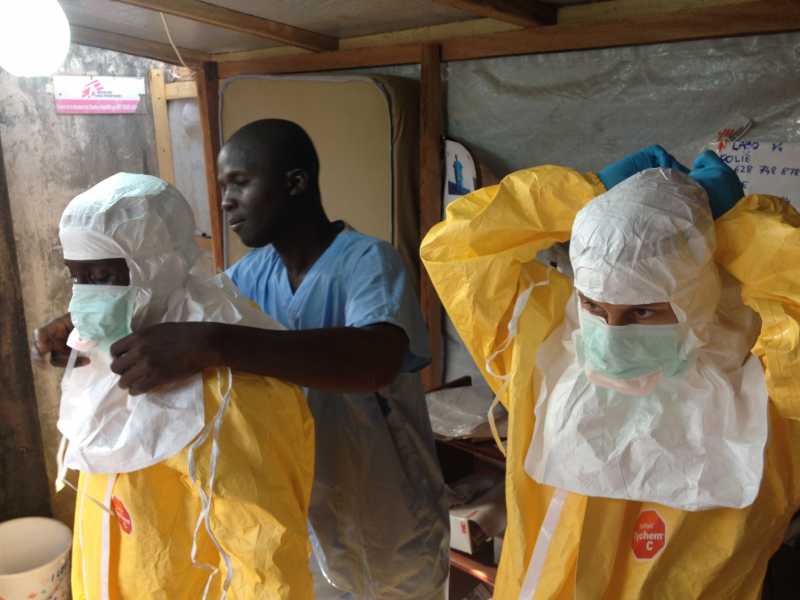Ebola outbreak reaches the European shores as the first case was confirmed in Spain. Doctors Without Borders (MSF) said the crisis gripping Guinea, Liberia and Sierra Leone would only get worse and warned there was no overarching strategy to handle the world’s worst outbreak of the disease.
 Spain has been preparing to accept Europe’s first confirmed case of the Ebola virus.
Spain has been preparing to accept Europe’s first confirmed case of the Ebola virus.
A medically-equipped military jet has been sent to Liberia to repatriate Miguel Pajares, 75, a Spanish missionary priest working at a hospital in the West African country.
WHO will convene a panel of medical ethicists to explore the use of experimental treatment in the ongoing Ebola outbreak in West Africa. Currently there is no registered medicine or vaccine against the virus, but there are several experimental options under development.
The recent treatment of two health workers from Samaritan’s Purse with experimental medicine has raised questions about whether medicine that has never been tested and shown to be safe in people should be used in the outbreak and, given the extremely limited amount of medicine available, if it is used, who should receive it.
“We are in an unusual situation in this outbreak. We have a disease with a high fatality rate without any proven treatment or vaccine,” says Dr Marie-Paule Kieny, Assistant Director-General at the World Health Organization. “We need to ask the medical ethicists to give us guidance on what the responsible thing to do is.”
The gold standard for assessing new medicine involves a series of trials in humans, starting small to make sure the medicine is safe to use. Then, the studies are expanded to more people to see how effective it is, and how best to use it.
The guiding principle with use of any new medicine is ‘do no harm’. Safety is always the main concern.
US Christian charity Samaritan’s Purse was temporarily withdrawing its non-essential staff from Liberia, it said, citing regional “instability and ongoing security issues”.
Hong Kong announced quarantine measures for suspected cases, although one woman arriving from Africa with possible symptoms tested negative, while the EU said it was ready to deal with the threat.
The International Civil Aviation Organization (ICAO) has held talks with global health officials on potential measures to halt the spread of the disease.
In Britain, where one person has tested negative for the disease, Foreign Secretary Philip Hammond said it was regarded as “a very serious threat”.
An emergency meeting had decided that the best approach was to provide “additional resources to deal with the disease at source” in West Africa, he added.
Ebola can kill victims within days, causing severe fever and muscle pain, vomiting, diarrhoea and, in some cases, organ failure and unstoppable bleeding.
Since March, there have been 1,201 cases of Ebola and 672 deaths in Guinea, Liberia and Sierra Leone, according to the World Health Organization (WHO).
The US Peace Corps announced Wednesday it was pulling hundreds of volunteers from the three countries.
There are currently 102 Peace Corps volunteers in Guinea working on agriculture, education and health, 108 in Liberia and 130 in Sierra Leone.
The European Union is equipped and ready to treat victims should the deadly virus be found in its 28 member states, an EU source said in Brussels.